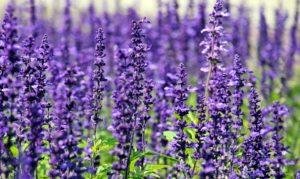Understanding Post-Traumatic Stress Disorder
Post-Traumatic Stress Disorder (PTSD) is a mental health condition that occurs after experiencing or witnessing a traumatic event. This disorder is characterized by a range of symptoms that can significantly impact an individual’s daily functioning. Common symptoms include flashbacks, nightmares, severe anxiety, and uncontrollable thoughts about the traumatic incident. These manifestations may begin shortly after the trauma or may take months or even years to surface, complicating the overall understanding of PTSD.
The triggers for PTSD can vary widely and are often linked to specific events or experiences that remind the individual of the trauma. For instance, a combat veteran may experience distress upon hearing fireworks, paralleling the sounds of battle. Similarly, survivors of assault may feel heightened anxiety in situations reminiscent of their experiences. These triggers can lead to an extreme emotional response, underscoring the profound effect PTSD has on the individual’s mental health.
The causes of PTSD are multifaceted and can include genetic predisposition, environmental factors and the nature of the traumatic experience. Notably, individuals who face repeated trauma or lack support systems during their recovery are at an increased risk of developing PTSD. Research indicates that PTSD affects approximately 7-8% of the population at some point in their lives, highlighting its prevalence across varying demographics.
There are a number of treatment options available for PTSD, ranging from psychotherapy techniques such as Cognitive Behavioral Therapy (CBT) to medication-based approaches including antidepressants. However, many individuals are seeking additional support from natural sources, prompting interest in herbal remedies. These remedies may complement conventional treatment options, providing a holistic approach to managing PTSD symptoms and enhancing overall well-being.
Herbs with Proven Efficacy for PTSD
PTSD affects many individuals and while conventional treatments exist, various herbs have been recognized for their potential efficacy in managing its symptoms. These herbal remedies are rooted in traditional practices and have been substantiated by recent scientific studies, illustrating their promising role in alleviating symptoms such as anxiety, insomnia and mood swings.
One notable herb is lavender (Lavandula angustifolia) historically used for its calming properties, lavender has been associated with reduced anxiety levels and improved sleep quality. Research indicates that lavender essential oil, when diffused or used in aromatherapy, can significantly enhance relaxation and reduce stress-related symptoms in individuals suffering from PTSD.
Another herb with strong evidence in managing PTSD symptoms is panic grass (Panicum maximum). Traditionally utilized in various cultures, this herb has demonstrated a capacity to lower anxiety and improve overall mood. Studies have shown that extracts of panic grass can positively affect the central nervous system, making it beneficial in aiding the treatment of anxiety and related disorders.
Valerian root (Valeriana officinalis) has also garnered attention for its effectiveness in addressing insomnia and anxiety associated with PTSD. Valerian has been utilized for centuries as a natural sedative, helping to enhance sleep quality. Scientific investigations have reported its ability to increase gamma-aminobutyric acid (GABA) levels in the brain, promoting calmness and reducing the severity of sleep disturbances.
Rhodiola (Rhodiola rosea) an adaptogenic herb, is known for its ability to combat fatigue and improve mood. It has shown potential in decreasing depression and anxiety levels in PTSD patients. The adaptogenic properties of rhodiola help the body adapt to stress, making it an ideal component of treatment. Each of these herbs offers unique benefits and contributes to a holistic approach in managing PTSD symptoms effectively.
Integrating Herbs into Your PTSD Management Plan
Managing Post-Traumatic Stress Disorder (PTSD) often requires a multifaceted approach, where herbs can play a significant role when integrated into a holistic management plan. First and foremost, it is crucial to identify what forms of herbs work best for individual preferences and circumstances. Common forms include teas, tinctures and capsules, each offering distinct benefits. Herbal teas, such as chamomile or valerian root are particularly beneficial for their soothing properties and can be consumed daily. Tinctures, which are concentrated herbal extracts, can be added to water or juice for those who prefer a more potent form. Capsules are convenient for individuals seeking precise dosages without the need for preparation.
When incorporating herbs into a PTSD management plan, dosage is an essential factor to consider. It is advisable to start with a lower dosage and gradually increase it, allowing time to monitor the body’s response. Each herb has specific recommended dosages, which should be carefully observed to maximize benefits while minimizing the risk of adverse effects. For example, St. John’s Wort has a typical dosage of 300 mg, taken three times a day; however, individual reactions to the herb can vary significantly.
Additionally, one must be vigilant about potential interactions with medications when integrating herbs into any regimen. Some herbs can interfere with conventional medications, altering their effectiveness or increasing the risk of side effects. Therefore, consulting a healthcare provider before starting any herbal product is paramount. This ensures a safe and effective approach to managing PTSD symptoms while considering individual health circumstances. By adhering to these guidelines, herbs can be beneficially integrated into a comprehensive PTSD management plan, enhancing overall mental health and well-being.
A reader sent this resource to me. Thank you Cameron!
Alternative PTSD Therapies for Veterans – https://roblevine.com/alternative-ptsd-therapies-for-veterans/
This post may contain affiliate/referral links. Read my full Disclosure/Disclaimer Policy.

